AWS certification is a powerful proof of your skills in cloud computing. With businesses quickly moving to cloud platforms, there is a high demand for professionals certified in AWS. They enjoy higher salaries and have access to exclusive job opportunities.
Your journey towards AWS certification can significantly impact your career in multiple ways:
- Industry Recognition: AWS certifications are valued in all IT sectors worldwide.
- Salary Boost: Professionals with certifications in AWS make 25.9% more than their counterparts without certifications.
- Career Mobility: Opens doors to roles in cloud architecture, development, and operations
- Validation of Skills: Proves your ability to implement cloud solutions effectively
Becoming AWS certified requires commitment and careful planning. You will need to understand both the theoretical aspects and practical uses of AWS services. While the certification process might seem daunting at first, you can simplify it by dividing it into more manageable stages.
Your success in obtaining AWS certification relies on selecting the right preparation methods that suit your learning style. There are various resources available to you such as hands-on labs, practice exams, study groups, and official training materials. The key is to create a well-rounded approach that combines different learning techniques in order to gain a thorough understanding of AWS services and best practices.
In this article, we will discuss the most effective strategies for preparing for your AWS Certification and setting yourself up for success in your cloud computing career.
Understanding AWS Certification Exams
AWS provides an extensive certification program aimed at confirming your skills and knowledge in various cloud computing roles. The certification path includes three main categories:
1. Foundational Level
- AWS Cloud Practitioner – Perfect for beginners and non-technical professionals
2. Associate Level
- AWS Solutions Architect Associate
- AWS Developer Associate
- AWS SysOps Administrator Associate
3. Professional Level
- AWS Solutions Architect Professional
- AWS DevOps Engineer Professional
Every certification focuses on particular knowledge and skill sets. The AWS Solutions Architect focuses on designing distributed systems and architecting cloud solutions. Your proficiency in creating and managing AWS-based apps is evaluated by the Developer certification. The SysOps Administrator certification validates operational expertise.
The exam structure follows a consistent format:
- Multiple-choice questions
- Multiple-response questions
- Time limit: 120-180 minutes
- Passing score: 720 out of 1000 points
Key Assessment Areas
- Cloud concepts and AWS services
- Security and compliance
- Architecture best practices
- Cost optimization
- Performance efficiency
- Operational excellence
During your exam, you will encounter scenario-based questions designed to test your practical knowledge. These scenarios reflect real-life situations you might face as an AWS professional. The questions evaluate both your theoretical understanding and your ability to solve problems in practical settings.
Exam Domains
- Design Resilient Architectures (30%)
- Define Performant Solutions (25%)
- Specify Secure Applications (25%)
- Design Cost-Optimized Solutions (20%)
The percentages indicate the weight of each domain in your final score. Understanding these weightings helps prioritize your study efforts and focus on high-impact areas.
Utilizing Official AWS Resources
AWS provides a diverse array of official resources to assist you in preparing for your certification exam. These materials are crafted to equip you with the essential knowledge and skills required for success.
1. AWS Skill Builder
The primary platform for exam preparation is AWS Skill Builder It provides an array of learning options, available in both free and paid formats, tailored to meet your requirements.
Free Practice Question Sets
- Actual exam-style questions
- Detailed explanations for each answer
- Performance tracking capabilities
- Regular updates to match current exam patterns
Digital Training Courses
- Self-paced learning modules
- Interactive knowledge checks
- Hands-on labs with step-by-step guidance
- Video tutorials from AWS experts
2. AWS Certification Official Practice Question Sets
These sets provide a realistic preview of the exam questions you’ll encounter. Each set contains questions that closely resemble the difficulty level and format of the actual certification exam.
3. Specialized Exam Prep Courses
AWS also offers specialized courses through authorized training partners. These courses are dedicated to exam preparation and encompass:
Intensive curriculum designed for the exam
- Practice labs in live AWS environments
- One-on-one mentoring opportunities
- Regular assessment and feedback
4. Local Training Options
For learners who prefer in-person training, AWS provides instructor-led programs in various regional centers, including Pune. These courses combine theoretical knowledge with practical applications and feature:
- Classroom or virtual learning environments
- Support in local languages when available
- Networking opportunities with other candidates
- Direct access to certified AWS trainers
5. Additional Learning Resources
To supplement your exam preparation, make use of the resources available in the AWS Learning Library. This library includes white papers, documentation, and technical guides that can enhance your understanding of AWS services and best practices.
Gaining Hands-On Experience with AWS Services
Hands-on experience is essential for succeeding in AWS certification. While reading documentation and watching tutorials are helpful, real learning happens when you start building and experimenting with AWS services.
The AWS Free Tier is a great starting point for hands-on practice. It enables you to utilize a range of AWS services at no cost, within specified limits.
- What the AWS Free Tier Can Do for You:
- Launch EC2 instances and configure security groups
- Set up S3 buckets with different storage classes
- Create custom VPCs with public and private subnets
- Deploy applications using Elastic Beanstalk
- Build serverless applications with Lambda functions
Real-World Projects to Try:
- Build a static webpage with CloudFront and S3.
- Build a scalable WordPress site with EC2 and RDS
- Design a fault-tolerant architecture using Auto Scaling
- Implement a CI/CD pipeline with Code Pipeline
- Set up monitoring and alerts with CloudWatch
AWS also offers dedicated learning environments through AWS Cloud Quest – a gamified platform where you solve real cloud challenges. Each quest provides distinct challenges that test your abilities to build AWS solutions.
Lab Platforms for Practice:
- AWS Skill Builder Labs – guided exercises with pre-configured environments
- AWS Workshop Studio – self-paced technical workshops
- AWS Well-Architected Labs – hands-on practice following best practices
- AWS Solutions Library – reference architectures for complex scenarios
Creating a personal AWS sandbox environment allows you to experiment without fear of breaking production systems. Set budget alerts to manage costs while you practice implementing different architectural patterns and service configurations.
Practicing with Mock Tests
Practice exams serve as your dress rehearsal for AWS certification success. These simulated tests replicate the actual exam environment, complete with similar question formats, time constraints, and difficulty levels.
Key Benefits of Mock Tests:
- Learn how to manage your time under pressure
- Become familiar with exam trends and question types
- Identify any knowledge gaps before the test.
- Reduce test anxiety through repeated exposure
Recommended Practice Test Strategies:
- Get Started: Take your first practice test four to six weeks prior to the exam date.
- Track Performance: Record your scores and completion times for each attempt
- Review Wrong Answers: Create a dedicated study list based on missed questions
- Simulate Real Conditions: Set up a quiet space and stick to official time limits
Performance Analysis Techniques:
- Create a topic-wise breakdown of your scores
- Note recurring themes in incorrect answers
- Calculate success rates for different question types
- Set benchmark scores for each practice attempt
Popular practice exam platforms like Whizlabs, Tutorials Dojo, and AWS’s official practice questions offer detailed performance analytics. These insights help pinpoint specific areas requiring additional focus.
Score Improvement Tips:
- Retake tests after studying weak areas
- Mix different question banks to avoid memorization
- Practice with varying difficulty levels
- Set progressive score targets for each attempt
Remember to maintain a balance between practice tests and actual learning. While mock exams are valuable assessment tools, they shouldn’t replace comprehensive study of AWS services and concepts.
Start Your Cloud Journey with the Best AWS Course in Pune – Apply Today!
Engaging in Study Groups and Forums
Study groups and forums create powerful learning environments where AWS certification candidates share experiences, solve problems, and motivate each other. These collaborative spaces enable you to learn from others’ mistakes, discover new study techniques, and gain diverse perspectives on complex AWS concepts.
Key Benefits of Study Groups:
- Real-time problem-solving with peers
- Access to shared study materials and resources
- Regular accountability and motivation
- Exposure to different learning approaches
- Quick answers to technical questions
Popular Platforms for AWS Study Groups:
- Reddit’s r/AWSCertifications
- AWS Official Discord Server
- LinkedIn AWS Professional Groups
- AWS re:Post Community
- Local AWS User Groups
Creating Your Study Group
- Start with 4-6 members for optimal interaction
- Set regular meeting schedules
- Create a shared resource repository
- Assign rotating discussion topics
- Use collaborative tools like Discord or Slack
Study Group Best Practices
- Share practice exam experiences
- Create mock scenarios for group problem-solving
- Rotate teaching responsibilities among members
- Document common mistakes and solutions
- Track group progress through regular check-ins
You’ll find these collaborative learning environments particularly valuable when tackling complex AWS services or preparing for scenario-based exam questions. Active participation in study groups accelerates your learning process and builds a professional network that extends beyond certification.
Attending Webinars and Live Training Sessions
Live webinars and training sessions provide a dynamic learning environment with real-time expert guidance. AWS-certified instructors share valuable insights, examination strategies, and practical tips during these interactive sessions.
Key Benefits of Live Training:
- Direct interaction with AWS experts for immediate clarification
- Real-time demonstrations of complex concepts
- Exposure to current industry trends and best practices
- Possibility of learning from questions posed by other participants
- Availability of session recordings for future use
AWS certification webinars typically cover:
- Deep dives into specific service configurations
- Common exam scenarios and solution approaches
- Architecture design principles
- Security best practices
- Cost optimization strategies
Making the Most of Live Sessions:
- Pre-session Preparation
- Review related documentation
- Prepare specific questions
- Configure your AWS console for practical exercises.
- During the Session
- Take detailed notes
- Participate in polls and Q&A segments
- Screenshot important diagrams or configurations
- Network with fellow attendees
AWS offers both free and premium live training options. Free webinars focus on exam readiness and service introductions, while premium sessions provide comprehensive hands-on labs and personalized feedback.
Expert-Led Training Programs:
- AWS Technical Essentials
- Advanced Architecture Workshops
- Security Engineering Deep Dives
- DevOps Implementation Strategies
These live learning experiences complement self-paced study methods by providing structured guidance and real-world perspectives from certified professionals actively working with AWS technologies.
Conclusion
It’s crucial to employ a range of preparation techniques in order to achieve success with AWS certification. Each approach, whether it’s hands-on practice or structured learning through webinars, is crucial in developing your skills
The time and effort you put into preparing for AWS certification will directly lead to career growth opportunities. Companies are actively looking for professionals with AWS certification, making it a powerful tool for advancing your career.
Getting certified by AWS involves more than simply passing a test; it also entails developing real-world skills that will increase your marketability in the cloud computing industry. Take the first step toward earning your AWS certification by beginning your preparation process right now.
Ready to get started? Select your certification path and create your personalized study plan using the methods we’ve discussed.

